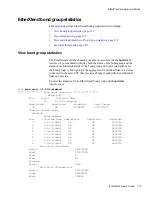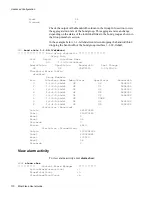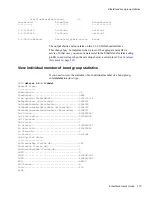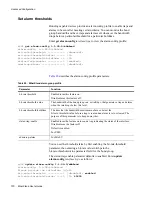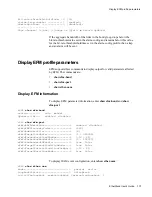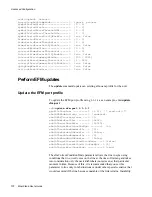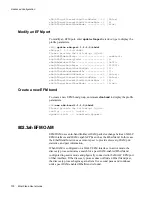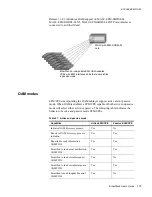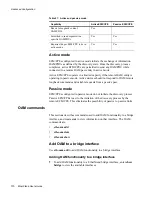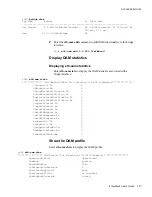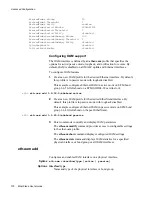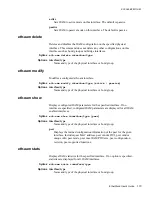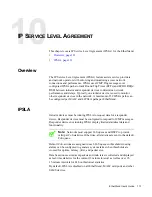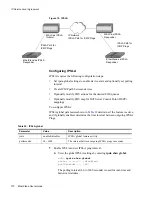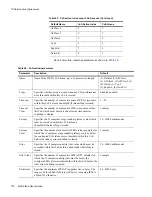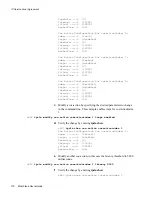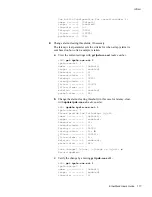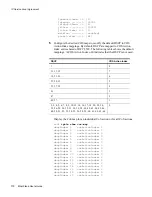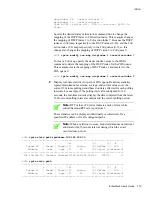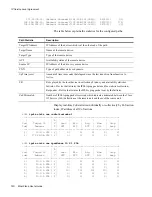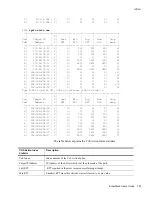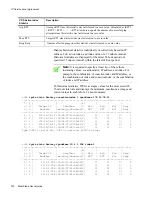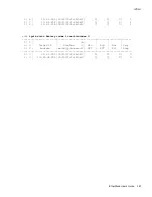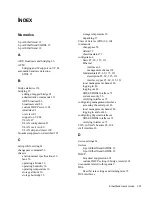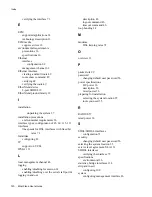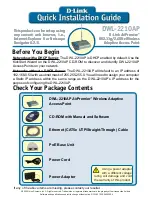
EtherXtend User’s Guide
131
IP S
ERVICE
L
EVEL
A
GREEMENT
This chapter covers IP Service Level Agreement (IPSLA) for the EtherXtend.
•
•
Overview
The IP Service Level Agreement (IPSLA) feature assists service providers
and network operators with enforcing and monitoring access network
connections and performance. IPSLA uses ICMP Ping messages over
configured IPSLA paths to track Round Trip Times (RTTs) and ECHO REQs/
RSPs between initiator and responder devices to determine network
performance and delays. Typically, one initiator device is used to monitor
other responder devices in the network. A maximum of 32 IPSLA paths can
be configured per MALC and 4 IPSLA paths per EtherXtend.
IPSLA
Initiator devices must be running IPSLA to request data for a responder
device. Responder devices must be configured to respond to ICMP messages.
Responder devices not running IPSLA display limited statistical data and
functionality.
Note:
Networks must support CoS queues and DSCP to provide
valid per CoS statistics. Otherwise, all statistics are sent to the default
CoS queue.
Default CoS-actions are assigned to each CoS queue so threshold crossing
alarms can be configured to generate system alarms when thresholds are
crossed for uptime, latency, jitter, and packet size.
Data based on received/sent packets and train rates is collected and displayed
as real-time statistics for the current 15 minute interval as well as over 96
15-minute intervals for 24 hour historical statistics.
By default, IPSLA is disabled on all EtherXtend, MALC card ports and other
SLMS devices.
Summary of Contents for EtherXtend 3300 Series
Page 8: ...Contents 6 EtherXtend User s Guide...
Page 18: ...Overview 16 EtherXtend User s Guide...
Page 70: ...Basic Configuration 68 EtherXtend User s Guide...
Page 132: ...Advanced Configuration 130 EtherXtend User s Guide...
Page 146: ...IP Service Level Agreement 144 EtherXtend User s Guide...
Page 150: ...Index 148 EtherXtend User s Guide...

